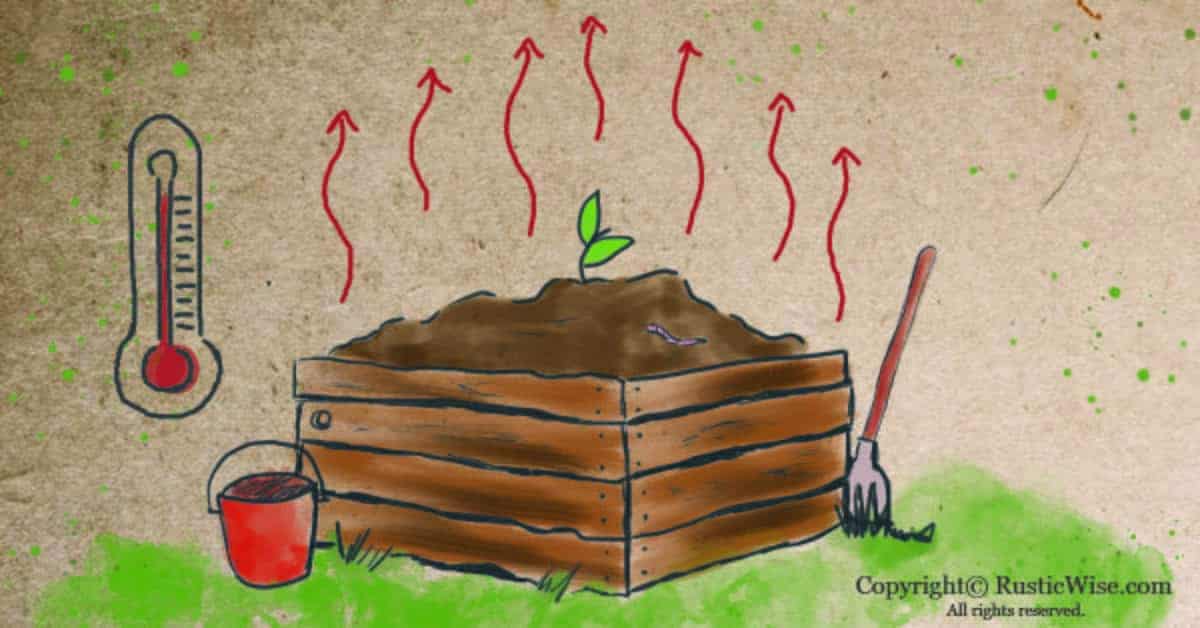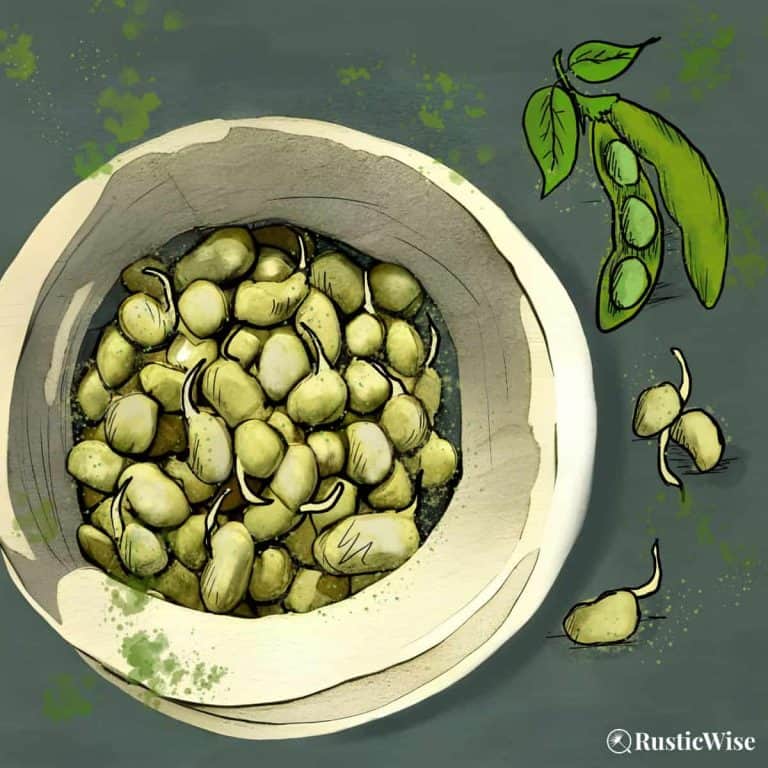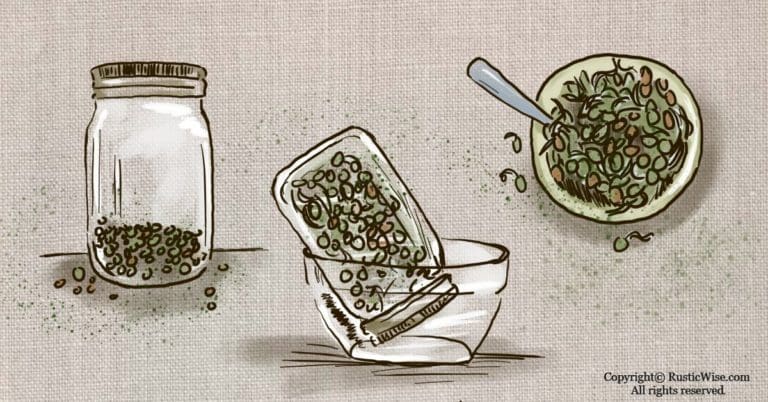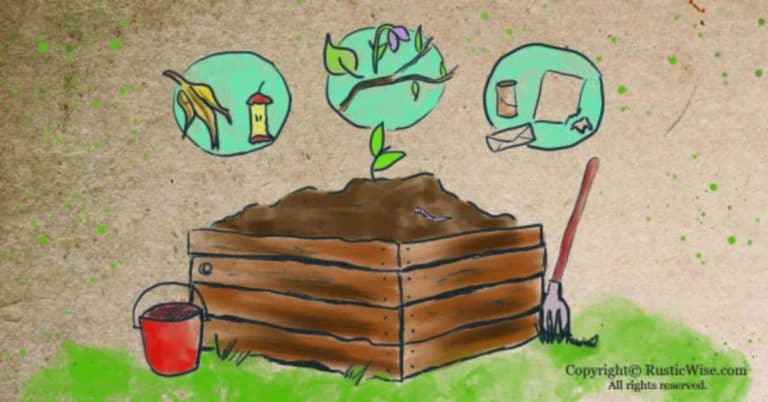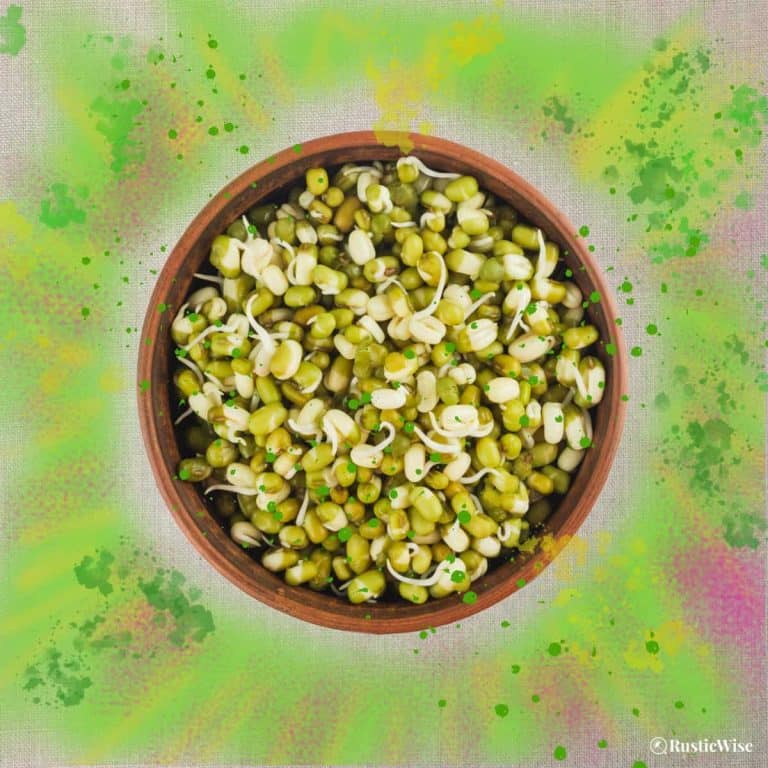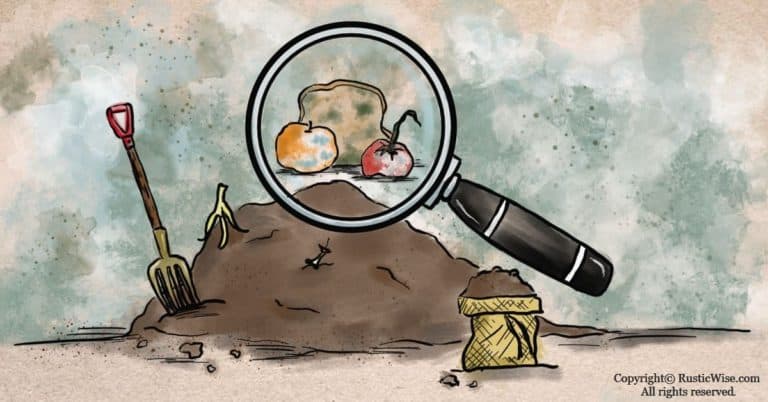Compost Tips: What’s the Fastest Way to Make Compost?
So you want to jump start the compost process and get results, pronto? How fast your compost pile breaks down into nutrient-rich soil conditioner depends on a number of factors such as:
- Size of the compost pile.
- Materials you put in it.
- How well it’s mixed and aerated.
The average decomposition process can take anywhere from three months to a year. But, with the right conditions, it’s possible to speed up the composting process to one month. Here’s what you need to know to get started!
Ideal conditions for your compost pile
Before we dig into the fastest way to make compost, let’s look at creating the right conditions for speeding things up. In order for your compost heap to thrive, you’ll need to help create the ideal conditions to allow bacteria, fungi and garden critters to do their jobs efficiently.
The formula for a healthy compost is: Half brown materials + Half green materials + Water + Air
Brown materials are a source of carbon which provides energy for the microorganisms in compost. This includes common composting materials including leaves, straw, branches and twigs, shredded paper, and cardboard. Since these take longer to break down, it’s a good idea to cut them into small pieces before throwing it in your compost bin.
Green materials are rich in nitrogen which helps microorganisms to grow and multiply. This includes your kitchen scraps (fruit and vegetable peels, egg shells, coffee grounds), and grass clippings.
Aiming for roughly half green and half brown materials ensure you get the right balance of carbon and nitrogen.
The right level of moisture is also vital. While it’s hard to gauge the level of moisture, most gardeners agree that a good compost pile should feel like a damp kitchen sponge.
Compost too dry? Add some water.
Compost too wet? Add some brown materials such as dry leaves or newspaper to absorb the moisture. If you live in an area with heavy rainfall, you might need to loosely drape a tarp over your compost pile, or a cover.
We have a wooden pallet compost in our backyard which we keep covered. This helps keep pests and excess moisture out. The open slats along the sides ensure it gets enough air.
The fastest way to make compost: hot composting
So, what’s the fastest way to make compost? Hot composting is a method that produces quick results. This involves adding enough green and brown materials to kick start the heating process to help with decomposition. You’ll need to tend to your compost daily to turn it and add water if needed.
According to the USDA, hot composting can produce results in about four weeks if you mix your compost daily. Mixing your compost pile every other week will take between one and three months to produce compost.¹
By starting a large enough compost and mixing more often, you’re creating the right conditions for a group of bacteria called thermophiles to thrive. These heat-loving bacteria exist when your compost pile reaches temperatures of 40–70°C (104–158°F). This group of bacteria only live for three to five days before dying off.
After a few days of intense heat, the thermophiles die off and your compost returns to a mid-range temperature. However, it’s possible for it to undergo this heating and cooling cycle several times.
Most composts only reach mid-temperatures between 20–30°C (68–86°F). This stage is where mesophiles thrive. This group of bacteria are the powerhouses. They actually do the bulk of decomposition.¹
One downside to hot composting is that the compost produced is slightly less effective than compost produced at low to mid-range temperatures. The high heat appears to kill off the helpful bacteria that suppress weed growth.
Fast composting tips
If you’re really itching to get digging in your garden, there are a few things you can do to speed things up. You’ll need to put in daily effort to create the optimal composting conditions.
Start in spring
The best time to start composting is in the springtime. This coincides with the growing season so you’ll have no shortage of plant clippings and branches to add to your compost. The temperatures are also ideal for starting the composting process. With proper care and a bit of luck, your compost will be going strong during the summer and you’ll have fresh compost ready to use by fall (or sooner).
Turning and mixing
Get your pitchfork out! Many composters only turn their compost pile every week, or even every three to four weeks. But if you want to speed it up, you can turn it daily, or at least every two to three days. Just make sure to mix material from the outside edges to the center and materials from the center are spread around.²
To layer or not to layer? Some people like to layer their compost with alternating green and brown materials. This works fine, but mixing works just as well and may even speed things up more.
Size really does matter
The size of your compost makes a big difference. Your compost should be at least 3ft (0.91 m) by 3ft. This size allows your compost to generate enough heat while also getting enough air. The microbial decomposers can really get going when your compost heap is the right size.
If you don’t have enough common composting materials to make a pile of this size, you’ll need to stockpile materials first. It might help to keep one container for brown materials, another for green.
If you’re making a hot compost, you can make the pile slightly larger: either 4 ft or 5 ft in dimension. The pile shrinks slightly as it heats up.¹
You’ll know your compost is working when you start to feel it heat up.
Small pieces, please
You can quicken the decomposition process by cutting up all materials into small pieces. Brown materials especially need to be cut up as they take longer to break down. If you’re adding branches, use gardening shears to cut them into small pieces. Newspapers, office paper, and cardboard can be shredded or ripped up.
The smaller the pieces are, the quicker it can break down.
Maintain moisture levels
As mentioned earlier, your compost needs moisture. Monitoring the water level daily to make sure it has the consistency of a damp kitchen sponge makes a world of difference.
What about compost starter?
Many people wonder if there’s some kind of magic elixir that can jump start the composting process and to provide some compost help. You might have heard of compost starter. You can buy compost starter at gardening stores. It’s essentially a nitrogen-packed mixture with microorganisms that you can dump into your compost, mix, and add water.
Some people rave about it. The truth is, you don’t really need it. If your composting conditions are right, your compost pile doesn’t need the extra help. But it doesn’t hurt to use compost starter either.
What about adding worms?
Worms help in decomposition, so most people would assume that the more worms, the better. But, you don’t need to add worms to your outdoor compost bin. These helpful critters naturally find their way to your compost pile. The types of worms you’ll naturally find in your compost are red worms, brandling worms, and tiger worms.
One thing worms seem to like is coffee grounds, so you can try adding some along the bottom of your compost heap.
How to tell if your compost is ready
Finished compost has the consistency and look of a crumbly chocolate cake. It should smell of earth.
While you might be in a hurry to use it in your garden, it’s best to let it sit for a few weeks to make sure the microbial content is dead. When you put freshly-made compost into your garden, it absorbs valuable nitrogen rather than providing it for plants.
While you can definitely speed up the composting process, nature has its own natural rhythm that can’t be fully rushed.
👉 If you like this post, see our complete Composting Collection.
Would you like more timeless tips via email?
Fun tips to help you live an independent, self-sustaining lifestyle. Opt-out at any time.


References:
- USDA Natural Resources Conservation Service, Composting, https://nrcspad.sc.egov.usda.gov/distributioncenter/pdf.aspx?productID=46. Accessed November 2023.
- Foster, Clare. Compost: How to make and use organic compost to transform your garden. London: Mitchell Beazley, 2014.

Author: Theresa Tesolin
Theresa is co-founder of RusticWise. She helps people unleash their inner DIY spirit by encouraging them to get dirty and make or grow something from scratch.

